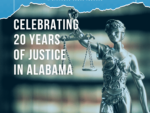By Farah Majid and Laurie McFalls, LSA’s High Impact Litigation Unit
Our client came to LSA when she was facing the loss of her Section 8 Housing Voucher on suspicions that she was involved in illegal drug sales. At the revocation hearing, the Housing Authority’s “evidence” consisted of nothing more than copies of two indictments more than a year old. The Housing Authority failed to bring any witnesses to the hearing, including law enforcement officers. They provided no testimony or claims from individuals who witnessed any criminal activity by our client. In spite of this absence of proof, and our client’s proof (in the form of a court order) that showed these old charges were in the process of being dismissed, the hearing officer still ruled against her, terminating her voucher and effectively barring her from the assistance she needed to avoid homelessness.
In every criminal trial, judges instruct juries that indictments are not evidence; an indictment alone is insufficient to deprive an individual of liberty or property. (An indictment without more is not enough to deny bail or sustain pretrial forfeiture of property.) To make an indictment unsupported by other proof a basis for terminating a vital benefit, is a fundamental unfairness that has no comparison in our legal system and upends the proposition that one is innocent until proven guilty.
LSA filed a federal lawsuit against the Housing Authority alleging that depriving our client of her benefits on the basis of an indictment alone violates the constitutional right to due process as well as federal housing regulations. While we lost in federal district court, LSA has just filed an appeal with the 11th Circuit Court of Appeals. This decision carries enormously high stakes for tenants who receive federal housing benefits. Voucher revocation hearings are meant to be independent factual contests and not rubber stamps for a criminal justice process where charges do end up being dismissed (which as our client testified, did eventually happen here) and are often based on unsubstantiated hearsay.
Our team in this case is led by our Advocacy Director Michael Forton, and two members of our High Impact Litigation Unit, Farah Majid and Laurie McFalls.





